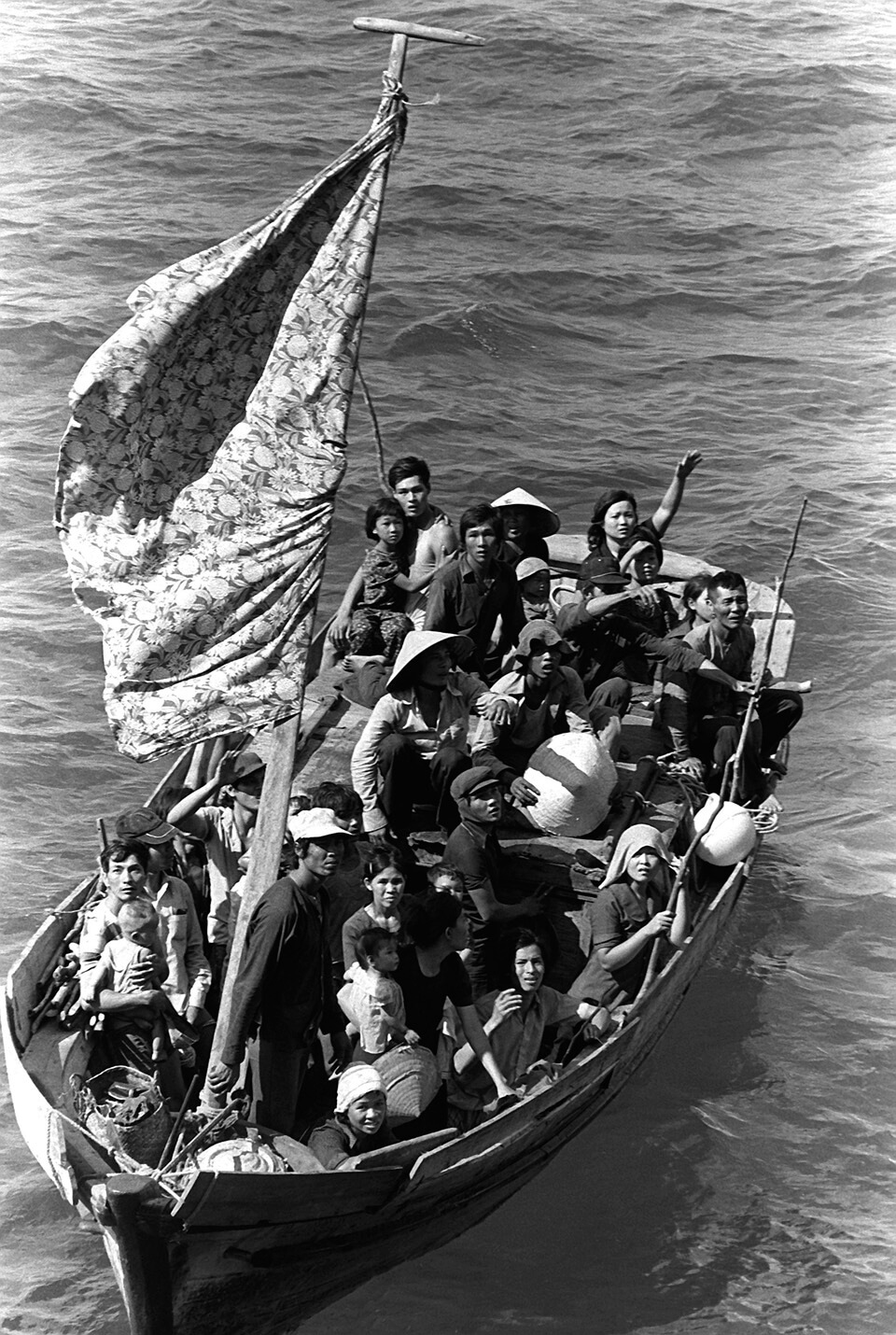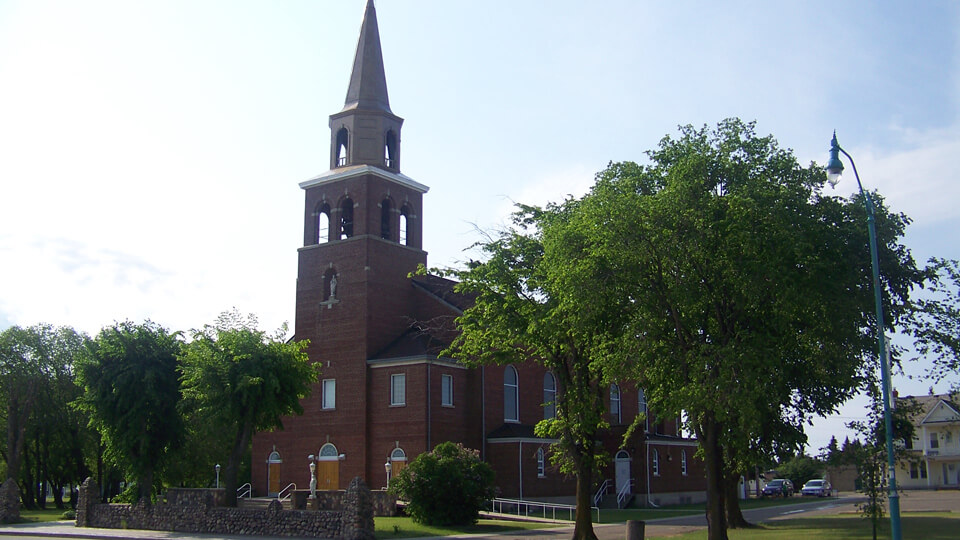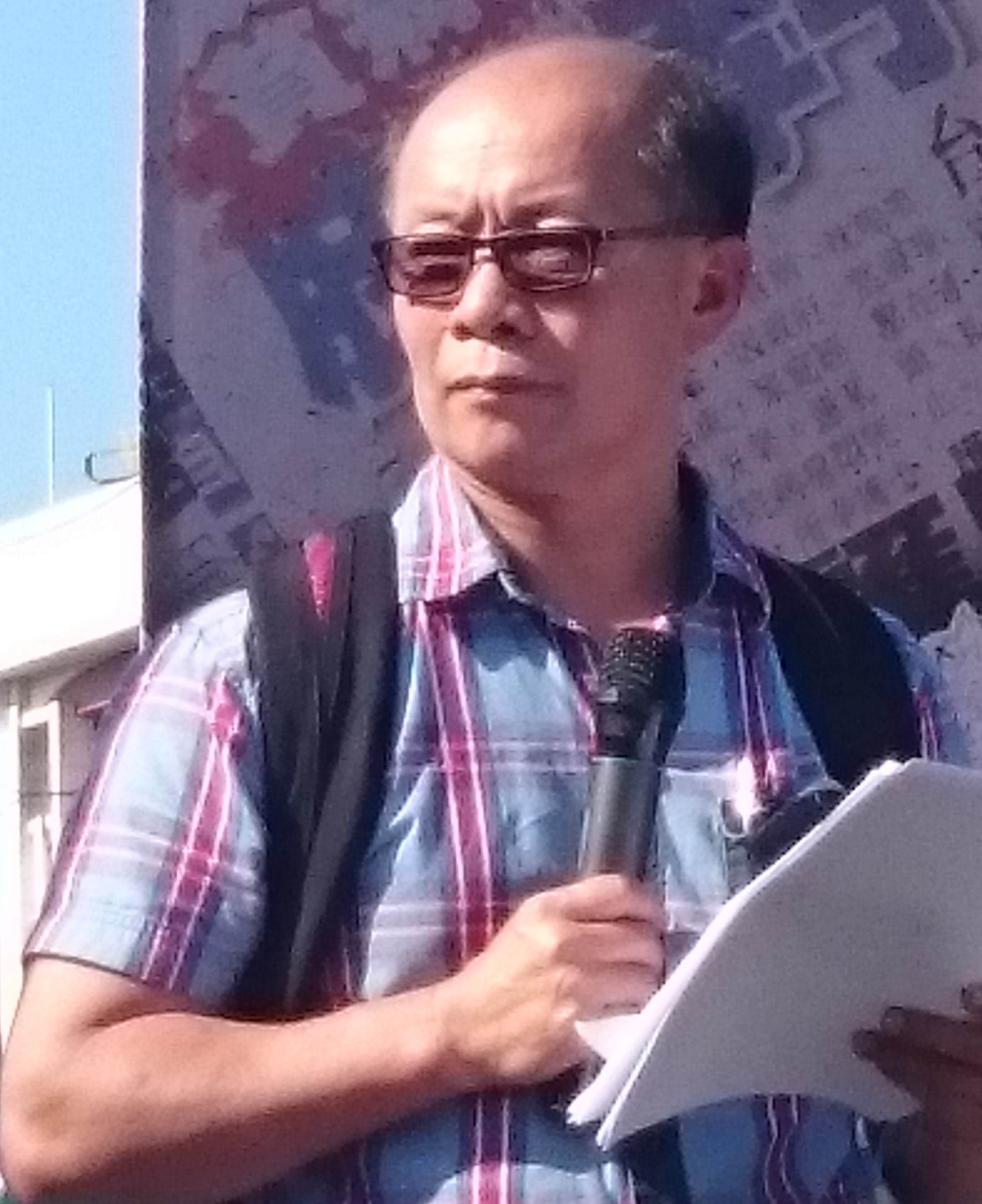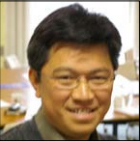A Seminarian For Thirty Years
By Fr Dominic Derramas
The author, a priest of the Diocese of Bacolod, is studying for his Doctorate in Canon Law at the Angelicum University, Rome. He is staying at the Pontificio Collegio Filippino where Fr Peter Tuyen The Tran also resided while studying at the Lateran University in Rome. That’s how the young Bacoleño priest, who wrote about the faith of his late father, Antonio Sr, in the May-June 2016 issue of MISYONonline.com, came to know the remarkable and inspiring story of the Vietnamese priest.

Fr Peter Tran, Chancellor of the Diocese of St Paul in Alberta, Canada, 2004-2015
St John Paul II, on the fiftieth anniversary of his priestly ordination, said that every priestly vocation at its deepest level, ‘is a great mystery; it is a gift which infinitely transcends the individual.’ (John Paul II, Gift and Mystery: On the Fiftieth Anniversary of my Priestly Ordination.) This is true for the vocation story of Fr Peter Tran who became a seminarian at the age of eleven but was ordained at the age of 41. His priesthood is, in the words of St John Paul II, both a gift and a mystery.
Tuyen The Tran was born in Đồng Tháp, Vietnam, to a devout Catholic family on 2 December 1951, the second of five children, and grew up in a religious atmosphere where his vocation to the priesthood was nourished from a very early age. The family belonged to an active parish community that lived peacefully alongside their Buddhist neighbors. He was baptized with the Christian name ‘Peter’ and studied in the Catholic elementary school beside the parish church. As a child, he was an altar server and attended Mass every day. The parish priest noticed this and chose him to enter the seminary. Thus, his high school education was completed in Saint Qui Minor Seminary in Cái Răng, Cần Thơ.
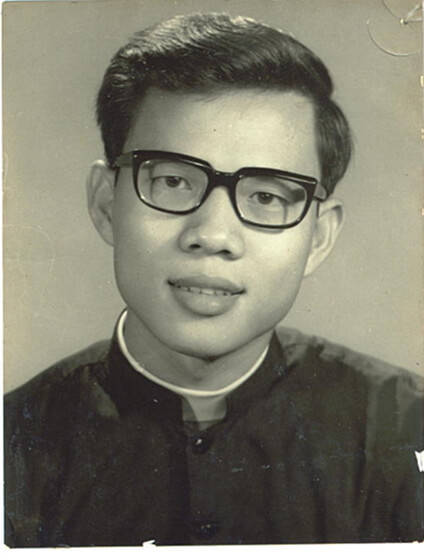
Graduate in theology, 1979
Peter Tran gradually clarified his vocation to the priesthood and proceeded to Saint Sulpice Seminary in Vĩnh Long for his Philosophy studies, which he completed in 1975, the year that the whole country came under the Communist Regime. All seminarians were sent home as the government took control of all educational institutions, including seminaries.
Peter stayed and served in his parish until the government eased its restrictions and allowed the seminarians to gather five months each year for their theological studies. The Catholic Church wasn’t totally banned but endured a form of oppressive scrutiny and severe limitations from the government. There were no Catholic schools and no formal teaching of religion. The government only allowed Catholics an hour or two each day to go to Church every day and a maximum of five hours on Sunday.
More pressure from the government only strengthened the faith of the people. They found creative ways to grow spiritually despite the limitations on their freedom. There was no formal catechesis but they were able to maximize the hours they spent in church every Sunday for learning about their faith and building a stronger Christian community.
Peter finished his Theological studies in 1979 but faced another restriction. Those to be ordained needed to submit their names to the government for approval. He applied for permission from the government and while waiting for the response stayed at the bishop’s residence and worked as his secretary.
Approval for ordination took more than two years after application because the government performed a thorough background check on the applicants. Peter applied four times but was rejected for various reasons. The first time, he was told that there were enough priests already so no more ordinations for a few years. He applied again after a few years but this time the political and military backgrounds of his brothers were sufficient to deny him ordination.
There were eighteen seminarians in Peter’s batch and eleven had already been ordained. Peter persevered and remained as a seminarian beside his bishop. He patiently performed his duties as secretary and doing his apostolate among the people, most especially in catechesis and the music ministry. After ten years of rejection, he had to face the reality that he would never be given permission by the Communist government to be ordained.
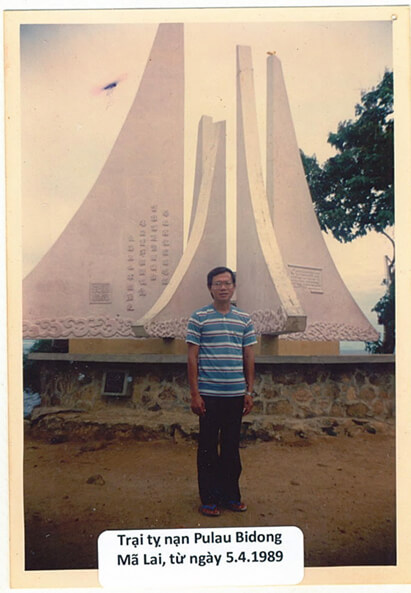
In refugee camp in Pulau Bidong, Malaysia, 1989 - 1991
Peter now had to face the difficult decision of staying in Vietnam as a lay person or finding some means of being ordained outside the country. It was a choice between the people he wanted to serve and the call to the priesthood. After careful discernment, he decided to follow God’s mysterious call even if it meant leaving the land where he thought he was needed.
And so, without any clear idea of where he would end up or what would happen to him, Peter took the risk of escaping Vietnam by joining the ‘boat people’ who braved the dangers of the sea in flimsy boats to seek refuge in other countries. After four perilous days on at sea the boat he was on arrived at the island of Pulau Bidong off the coast of Malaysia.
Vietnamese boat people awaiting rescue [Wikipedia]
This small island was the designated refugee camp for those fleeing Vietnam during those times. When Peter arrived there in 1989 there were about 10,000 refugees packed within its one square-kilometer area. Conditions were difficult despite the assistance of the United Nations Commission for Refugees (UNHCR) and other humanitarian agencies. He stayed in the refugee camp for two years, studying English while waiting for resettlement. He spent his time also working for Canadian officials of UNHCR. It was through this connection that he was able to leave the camp.
St Paul Cathedral, St Paul, Alberta, Canada [Wikipedia]
Peter arrived in Canada in 1991 through a friend who sponsored him and found himself in St Paul, Alberta. Not knowing anybody connected to the Catholic Church in Canada, he attended daily Mass in the cathedral just to get his bearings. After a few days, he was invited by his friend to attend Mass in the chapel of a nearby Sisters’ convent. Arriving early, he was strolling around the garden of the convent he approached a man there, hoping to practice his English. He discovered he was chatting with Bishop Raymond Roy of the Diocese of St Paul in Alberta.
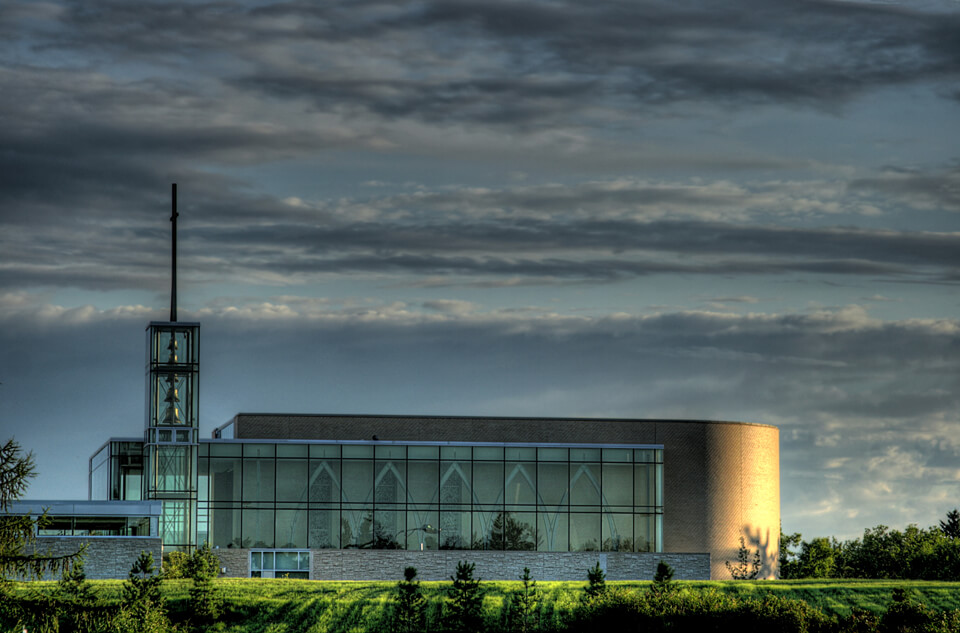
St Joseph Seminary, Edmonton, Alberta [Wikipedia]
Bishop Roy, who retired in 1997 and died in 2003, listened to Peter’s story and, after due investigation, accepted him into his diocese. That year, he was enrolled in St Joseph Seminary in Edmonton for a refresher course in theology. After eighteen months, on 22 January 1993, the refugee seminarian from Vietnam was finally ordained and became Fr Peter Tuyen Tran of the Diocese of St Paul in Alberta, Canada.
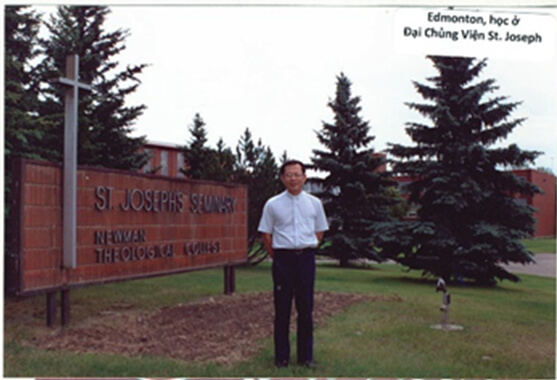
At St Joseph Seminary, Edmonton, Alberta, 1991
Fr Peter served his new diocese for 24 years. He spent thirteen years in parish work and eleven as chancellor of the diocese. He obtained a Licentiate in Canon Law from St Paul University, Ottawa, which was invaluable in his chancery work. At one time he served as Diocesan Administrator for almost a year while the diocese was waiting for a new bishop to be appointed.
All throughout those years, Fr Peter never forgot the Church in Vietnam. He feels that his vocation to the priesthood is needed more in his home country that he still loves so much. At the age of 65 he retired from active ministry, not to rest, but to go back to Vietnam. He wants to spend the rest of his priestly life and ministry in his home country. Specifically, he plans to teach Canon Law and so he spent money out of his own personal savings to finish his doctoral studies.
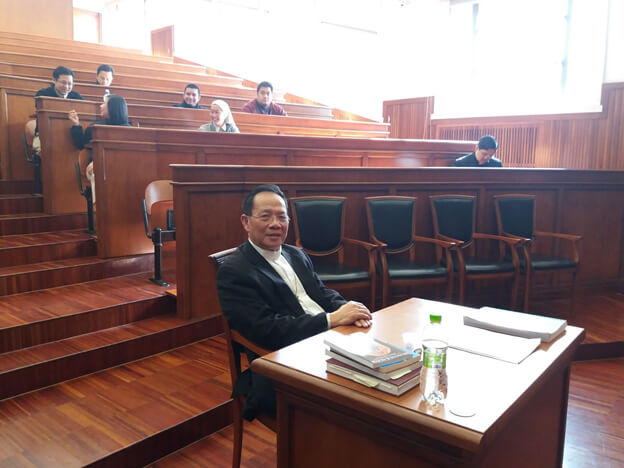
Doctor in Canon Law, Magna Cum Laude
The mystery and the gift of vocation led Fr Peter to the other side of the world. It was in following God’s inexplicable was that he realized his calling to the priesthood. It is also by God’s generous grace that in February 2017 Fr Peter obtained a Doctorate in Canon Law, Magna Cum Laude, at the Lateran University in Rome. Now, with a heart full of hope, He is preparing to return to the land he left long ago, so that finally, he can serve the people of Vietnam as a priest.
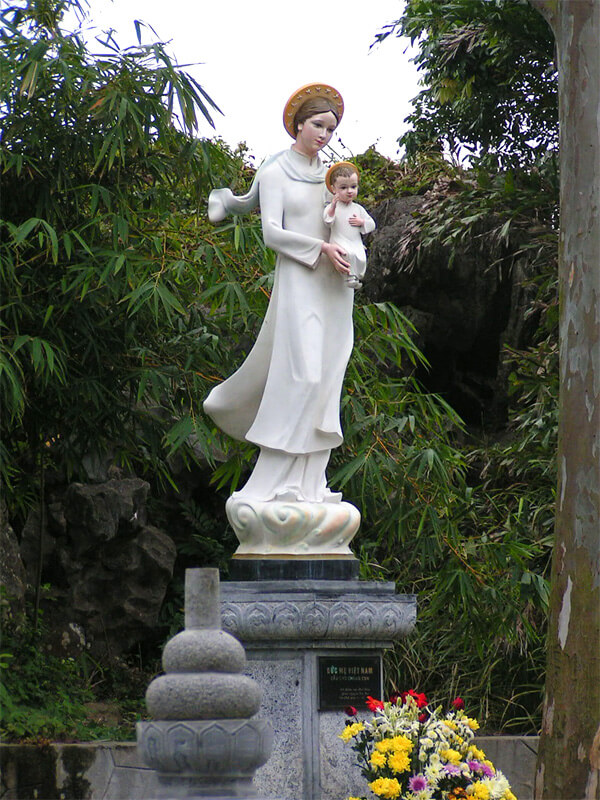
Our Lady of La Vang, Vietnam [Wikipedia]
Vietnamese Catholics in Greenville, South Carolina, USA celebrate Our Lady of La Vang
Notice the similarity to the Flores de Mayo in the Philippines.
Two Vietnamese Columban ‘Boat People’ PriestsFr Peter Nguyen Van Hung, ordained in 1991 and working in Taiwan, and Fr Nguyen Xuan Tien, ordained in 1995 and working in Japan, arrived in Australia as ‘boat people’, refugees from Vietnam. Both studied and were ordained in Australia.
Father Peter has been honoured by the US Department of State for his anti-trafficking work in Taiwan. You can read about his work in Taiwan’s desperate migrant mothers. We published an interview with Father Peter in the March-April 2001 issue of Misyon: Story of a Boat Person.
You can read the story of Fr Nguyen Xuan Tien in Farewell Saigon in the March-June 1995 issue of Misyon. |
